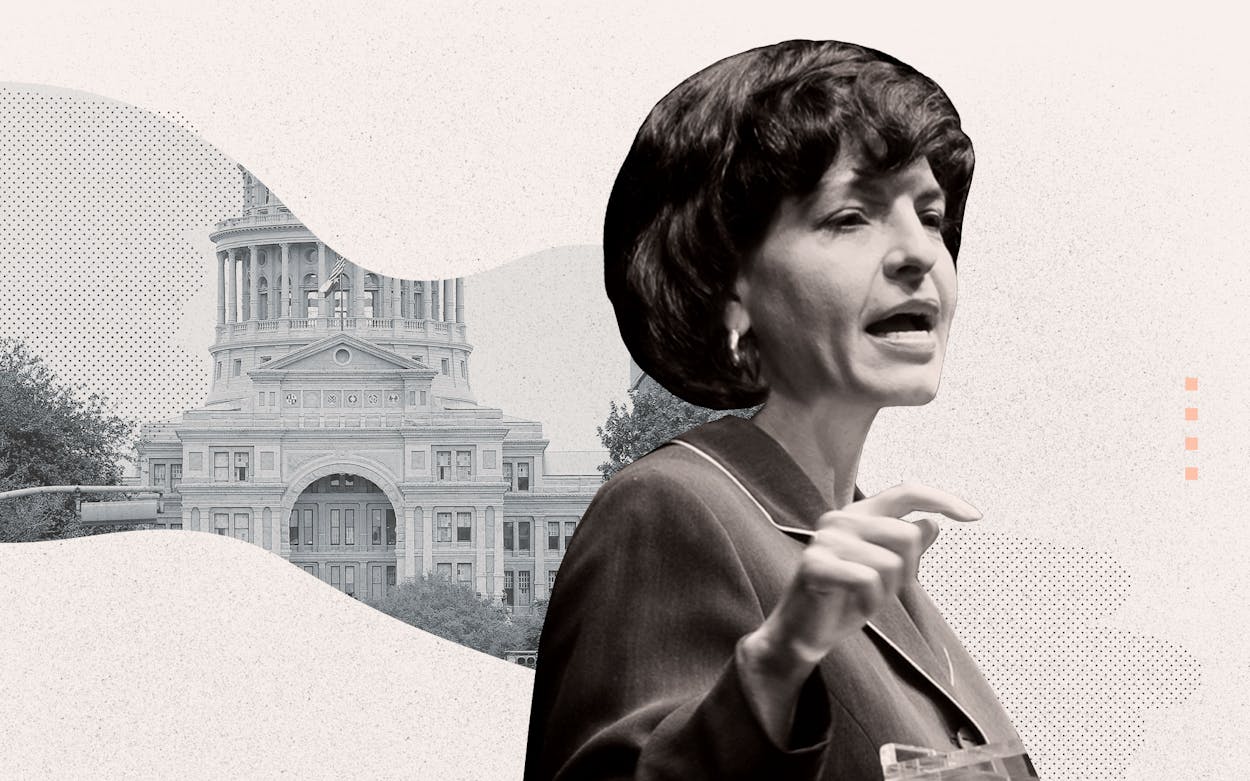I grew up in Midland, a place that was ahead of the curve in embracing Republican politics, and today claims the only woman elected in statewide executive office: me.
I am proud of my roots and proud of my accomplishments. But I would rather not be the only woman in Texas in this position, because I believe we all benefit from a diversity of voices and perspectives—especially the perspective of women.
Texas has a rich history of strong women—from Angelina Eberly, whose cannon fire preserved Austin as the capital of Texas, to more recent prominent female leaders in statewide office, including Senator Kay Bailey Hutchison, Comptroller Susan Combs, Comptroller Carole Keeton Strayhorn, and Railroad Commissioner Elizabeth Ames Jones. Texas entered the last decade with eighteen Republican women serving in the Texas House. Today that number has dwindled to only 8 of 150. Two of those eight are not coming back.
The recent passing of our former first lady Barbara Bush was felt deeply by those of us who are Republican women operating in the public sphere, because we have so few female Republican role models in the public eye.
Why does this matter? Why should every Texan be concerned about gender politics? Politicians create public policy impacting every one of us, but especially our children, our education system, and our healthcare. Statistically, women are more likely to be teachers, more likely to volunteer at their children’s schools, more likely to take sick kids to the doctor or interact with a family’s insurance company. But year after year, fewer women are having these policy discussions at the state level.
Women who are interested in politics need mentors so they can realize their potential if they choose to run for office. There’s a value to relatability, or being able to not only see women already in leadership roles but have access to them. The mentors who can act as a resource and share their experiences with women who want to serve in office are dwindling. If we want a new crop of Republican women in elected office in Texas, they must be supported. That’s why I started Connecting Conservative Women.
As women, we are relational beings. We know a day is enriched by a conversation with a friend, lunch with a colleague, or time with a child. We know human relationships are the essence of life. We know that life is really lived along the journey and not at the destination. Women are often better at balancing the achievements of professional ambitions with personal ones. Mentoring networks support those new relationships, collaboration, and, ultimately, greater success for all.
For example, I frequently hear from women that they believe the fundraising aspect of running for office is a barrier—they don’t know how or where to find the resources they would need to run a campaign. If they have the opportunity to sit down and talk with someone who’s done it, particularly another woman, we can show them that it is possible and provide them with a path to achieve their own success. Support in the form of mentorship empowers women to seek out the tools they need to accomplish their goals. I hope, for some, their goal may be to serve in public office.
I mentor young women myself, and I also have peers who I regularly seek advice from. I’ve learned a lot from other women—as well as men—and their experiences. My advice for other women is to look around your world, find the woman that you want to talk to, and don’t be afraid to reach out and ask her to grab coffee or lunch. Many of us would be happy to sit down and help others get engaged. Our state and our world would be a better place for it.
To see resources about female mentorship, getting involved in local issues, and what to do if you experience sexual harassment, read here.
More from this collection
The Women’s Voices Project
In a series of as-told-to conversations, two dozen Texas women talk about gender, work, and what needs to change for women in their home state. Read their perspectives here.
- More About:
- Politics & Policy






